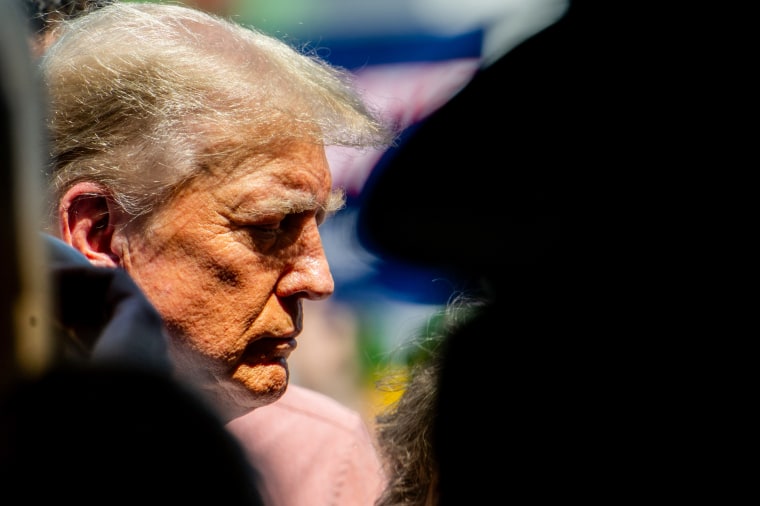Six voters in Colorado filed a lawsuit Wednesday seeking to remove former President Donald Trump from the state's election ballots because of his role in the insurrection on Jan. 6, 2021.
Their suit, which was filed in a District Court in Denver, contends that Trump should be disqualified from running in future elections under Section 3 of the 14th Amendment of the Constitution, which states that no person shall hold any office if they "engaged in insurrection or rebellion" after having taken an oath to support the Constitution.
The group called on the court to remove Trump from the 2024 ballot and declare that it would be "improper" and "a breach or neglect of duty" for Colorado Secretary of State Jena Griswold, a Democrat, to allow his name to appear on any future primary or general election ballots.
Citizens for Responsibility and Ethics in Washington (CREW) and several law firms filed the lawsuit on behalf of the six voters — four Republicans and two unaffiliated.
The petitioners include former Rep. Claudine Schneider, a registered Republican who represented a congressional district in Rhode Island from 1981 to 1991, and endorsed Barack Obama for president in 2008, Hillary Clinton in 2016 and Joe Biden in 2020; Norma Anderson, who served as majority leader in the Colorado House and Senate; and Krista Kafer, a conservative columnist for the Denver Post, who said she would vote for Trump in 2020. Anderson left the Republican Party in 2021, but CREW confirmed to NBC News that she rejoined the GOP a year later.
Their 115-page lawsuit argues that Trump violated his oath of office by inciting the mob that attacked the Capitol on Jan. 6.
The group included findings on Trump's efforts to overturn the election results that were revealed by the House Jan. 6 committee, which dissolved in January after having concluded a lengthy investigation into the riot, as well as from special counsel Jack Smith's investigation that led to one of the four criminal indictments against the former president.
"President Trump was the mob’s leader, and the mob was his weapon. The mob traveled from throughout the country to Washington because the President summoned them there," the lawsuit argued. "He instructed the mob to march on the Capitol and they complied. Many in the mob left the Capitol grounds only when, after hours of violence against police officers and interference with Congress’s constitutionally-mandated duties, Trump belatedly told them to leave."
Reached for comment, Griswold didn't weigh in on whether Trump violated the Constitution or should be disqualified from the ballot. "I look forward to the Colorado Court’s substantive resolution of the issues, and am hopeful that this case will provide guidance to election officials on Trump’s eligibility as a candidate for office," she said in a statement.
Trump campaign spokesperson Steven Cheung slammed the voters behind the lawsuit, saying in a statement that they're "people who are pursuing this absurd conspiracy theory and political attack on President Trump."
They "are stretching the law beyond recognition much like the political prosecutors in New York, Georgia, and DC," Cheung added. "There is no legal basis for this effort except in the minds of those who are pushing it."
CREW noted that Section 3 of the 14th Amendment has "not been tested often in the last 150 years, due to lack of insurrections."
However, CREW also said that last year it represented New Mexico residents who sued to remove Cowboys for Trump co-founder Couy Griffin from his elected position as Otero County commissioner, which was "the only successful case to be brought under Section 3 since 1869."

